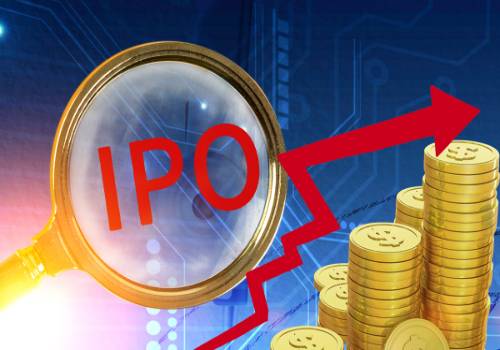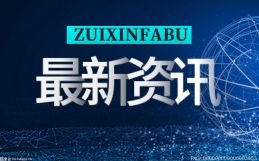Image Source: Visual China
ChatGPT and its underlying large natural language models have spawned a fresh array of startups in China. Meanwhile, industry veterans such as Kai-Fu Lee, Wang Huiwen, and Wang Xiaochuan are riding the wave, along with senior executives from Chinese internet giants like Alibaba, Tencent, and Kuaishou, who have resigned to chase this entrepreneurial opportunity.
In March, Jia Yangqing, Alibaba"s Vice President of Technology, left his position with his team to establish a new venture focused on AI, including large language model applications. Similarly, Qiu Xiaohu, Tencent"s Vice President and Head of the Platform and Content Business Group, has recently stepped down, with rumors swirling that he will set up an AI-centered startup.
 (相关资料图)
(相关资料图)
Li Yan, a key member of Kuaishou"s AI team, founded Yuan Shi Technology in 2022 after departing the company in 2021 to develop multimodal large models. Amazon"s Chief Scientist Li Mu may join Boson.ai, an artificial intelligence company co-founded by machine learning expert Alex Smola and Li"s doctoral advisor at Carnegie Mellon University.
The China Entrepreneur magazine has compiled a list of top executives who have left major Chinese internet companies to launch their own ventures. This new generation of entrepreneurs boast strong technical backgrounds, differing from the previous crop of product manager-turned mobile internet innovators. This round of entrepreneurship, centered on large language models and AI, comes with higher entry barriers and greater capital investment requirements.
Investors Favor FoundersWith Big Tech Executive Backgrounds
Investors are increasingly attracted to founders who have held senior positions in major internet companies.
In February, Wang Huiwen, the co-founder and former Senior Vice President of Meituan, announced plans to "build China"s OpenAI" by establishing Beijing Guangnianzhiwai Technology with a personal investment of US$50 million. Meituan founder Wang Xing quickly threw his weight behind Wang Huiwen, participating in Guangnianzhiwai"s Series A financing round as an individual investor and joining the company"s board of directors. Top-tier venture capital firms have already committed US$230 million for the next funding round, with Guangnianzhiwai currently valued at US$200 million, according to Wang Huiwen.
Industry veteran Jia Yangqing is among the eager entrepreneurs, attracting interest from investors and supported by a team. Known as the "Father of Caffe" and an AI expert, Jia joined Alibaba in March 2019, leading the research and development of Alibaba"s big data computing platform as a P11 level expert with an estimated annual salary of US$2 million plus significant stock options.
After four years at Alibaba, Jia plans to embark on the next adventure in his career, with high possibilities to launch a startup in the AI architecture space. While Alibaba did not respond to inquiries about investing in Jia"s venture, his years of AI experience will likely be invaluable in his new pursuit.
Qiu Xiaohu, a former Princeton University-educated Tencent Group Vice President, had worked at Google for 12 years before holding positions such as CTO of Xiaohongshu and Vice President of Didi Chuxing. Qiu followed in the footsteps of Yao Xing, a former Tencent Group Vice President and AI LAB Dean.
In June 2021, XVERSE secured US$40 million in angel round financing, with investments from Tencent, Gaorong Capital, 5Y Capital, and Hillhouse Capital. Yao Xing founded the company after leaving Tencent. It is common for entrepreneurs to leave major companies, start ventures, and receive investments or even acquisitions from their former employers.
An investor told China Entrepreneur that top-level employees of major companies have extensive technological knowledge, but large language models need actual commercial applications to truly progress, such as ChatGPT and Microsoft"s Copilot.
Wang Huiwen is currently recruiting product managers on a significant scale, with confirmed co-founders of Guangnianzhiwai having backgrounds in infrastructure and algorithms. The company continues to hire tech experts, such as product managers with a vision of using AI to transform the world.
In the startup world, connections and investments are crucial.Individuals from major companies like Alibaba, Tencent, and Amazon attract more attention and find talents more easily. In contrast, Li Yan from Kuaishou and Peng Zhihui from Huawei face greater challenges.
Li Di, the CEO of Xiaoice, told China Entrepreneur that large language models must rely on an ecosystem,which involves user feedback on model optimization, reinforcement learning, and commercial returns to support ongoing large-scale investment.
From this perspective, leaving a major company to launch a startup and leveraging existing resources to implement practical applications in specific fields may potentially result in breakthroughs.
Searching for China"s Sam Altman
Sam Altman, considered the father of ChatGPT, resigned as president of Y Combinator in early 2019 to lead OpenAI. He quickly established the for-profit company OpenAI LP and became its CEO to raise funds, frequently showcasing OpenAI"s models to Microsoft"s CEO Satya Nadella.
In AI startups, founders typically focus on technology, while CEOs concentrate on financing and generating revenue. This division of labor is particularly noticeable.
"We"re seeking a CEO to build China"s OpenAI. Our expectations include the ability to integrate top resources and a vision to strongly believe in the potential of large language models. China"s Sam Altman, please contact me as soon as possible, as time waits for no one,” said a post on WeChat Moment of Lan Zhenzhong, founder of Westlake Xinchen in late February.
In the call-to-action post, Lan stressed the need for skilled management and resource-integrating CEOs in addition to technology in the fierce AI talent competition.
Westlake Xinchen, founded in 2021, specializes in large language model research and application. Lan, a former research scientist at Google and the first author of the lightweight large model ALBERT, joined Westlake University in 2020 as head of the deep learning lab and doctoral supervisor. Westlake Xinchen has secured millions of US dollars in a pre-A financing round.
Will Duan, the founder of Proximai and former VP of Roblox China, is a pioneer of Generative AI applications in China. Since 2022, he had addressed forums and seminars about likely breakthroughs delivered by large models, often citing the artificial intelligence character in the Her movie. In his view, the release of ChatGPT marked early advent of the singularity. “China will have its own big models for sure. But it is uncertain how wide the gap is, which will be determined by the speed difference between innovators in the world’s two largest economies,” he pointed out.
Duan, a former product expert at Tencent Game, also stressed that the application ecosystem is equally important despite technological barriers, adding that China lagged behind the United States in terms of chip technologies and operating systems but it overtook the United States in applications like WeChat and TikTok in the mobile Internet era. Proximai, which boasts a core team of product managers, will not join the already crowded arena to develop large models, but focus on the application of large models in China.
Investor Zhuang Minghao noted that industry giants, investors, entrepreneurs, and governments share a consensus on the new AI era. OpenAI has discovered a new frontier, with competition spanning technology, products, operations, markets, organizational structures, capital, and government resources.
For product experts, technology may be the least competitive aspect of this AI entrepreneurship wave. The remaining competition revolves around funding, computing resources, and application scenarios.
OpenAI reportedly utilizes 25,000 Nvidia A100 GPUs, averaging 300 GPUs per person. Training GPT-3 once cost tens of millions of US dollars, and ChatGPT"s monthly operating cost is US$75 million. OpenAI has invested tens of millions of dollars in data annotation, mobilized thousands of outsourced personnel worldwide for data processing and maintaining a data team for model reinforcement learning. In 2022, OpenAI"s computing power and data expenditure reached US$416 million.
After securing initial financing with a technology-based blueprint, managing the company and continuously generating profits remains the greatest challenge for AI entrepreneurs.
The Golden Age of Engineers
In the mobile internet era, product managers like Zhang Xiaolong, Huang Zheng, Zhang Yiming, and Cheng Yixiao took center stage, creating products billions engaged with and becoming integral to modern life. Their success relied on understanding human nature and addressing people"s needs.
Zhang Yiming, for instance, championed delayed gratification, sufficient context, and minimal control. He believed that management should respect human nature and CEOs should avoid rational arrogance.
Huang Zheng saw Pinduoduo as a "Costco + Disney" blend rather than an e-commerce company. Consumption upgrading was about providing third-tier city residents in China with access to quality products, not making people in Shanghai live like Parisians.
These product managers received praise, even achieving a deity-like status. However, few may recall Qiu Bojun, "China"s first programmer," who co-founded Kingsoft Software and developed WPS, taking on Microsoft single-handedly.
Engineers and programmers often remained in the background, despite being essential.The division of labor in internet companies had front-office product managers making demands and back-office designers and engineers modifying modules and adding features.
Engineers are vital. When asked if he preferred working with a product manager or an engineer, Zhang Xiaolong replied, "I"d rather work with an engineer than a product manager."
Technological advancements happen quickly, and technical talents often rise to middle management due to the era"s dividends but struggle to progress further. They are less likely to join senior management.
For instance, Zhang Yiming handed ByteDance to Liang Rubo, who had a human resources management background, while Jack Ma passed Alibaba to Zhang Yong, who came from a finance background. Pinduoduo is an exception, with Huang Zheng’s successor having a deep technical background as a research and development engineer.
Technical executives at large companies often face challenges. They may be eager to try new technologies but must consider user retention, input-output ratios, and company management"s opinions. Large companies offer platforms but also limit potential. Nonetheless, these executives maintain high enthusiasm for technological innovation due to their belief in the "sanctity of technology."
It wouldn"t be surprising for these technical experts to launch their own ventures if they can capitalize on a wave of technological change and have resources like connections and capital. However, unlike the human-centric approach of product managers in the mobile internet era, engineers in the AI and large model era are more convinced that technology surpasses human nature.
The defining characteristic of human civilization is the use of fire and tools. Today, these engineers have mastered this fire, and they determine its intensity and where it burns.















































































